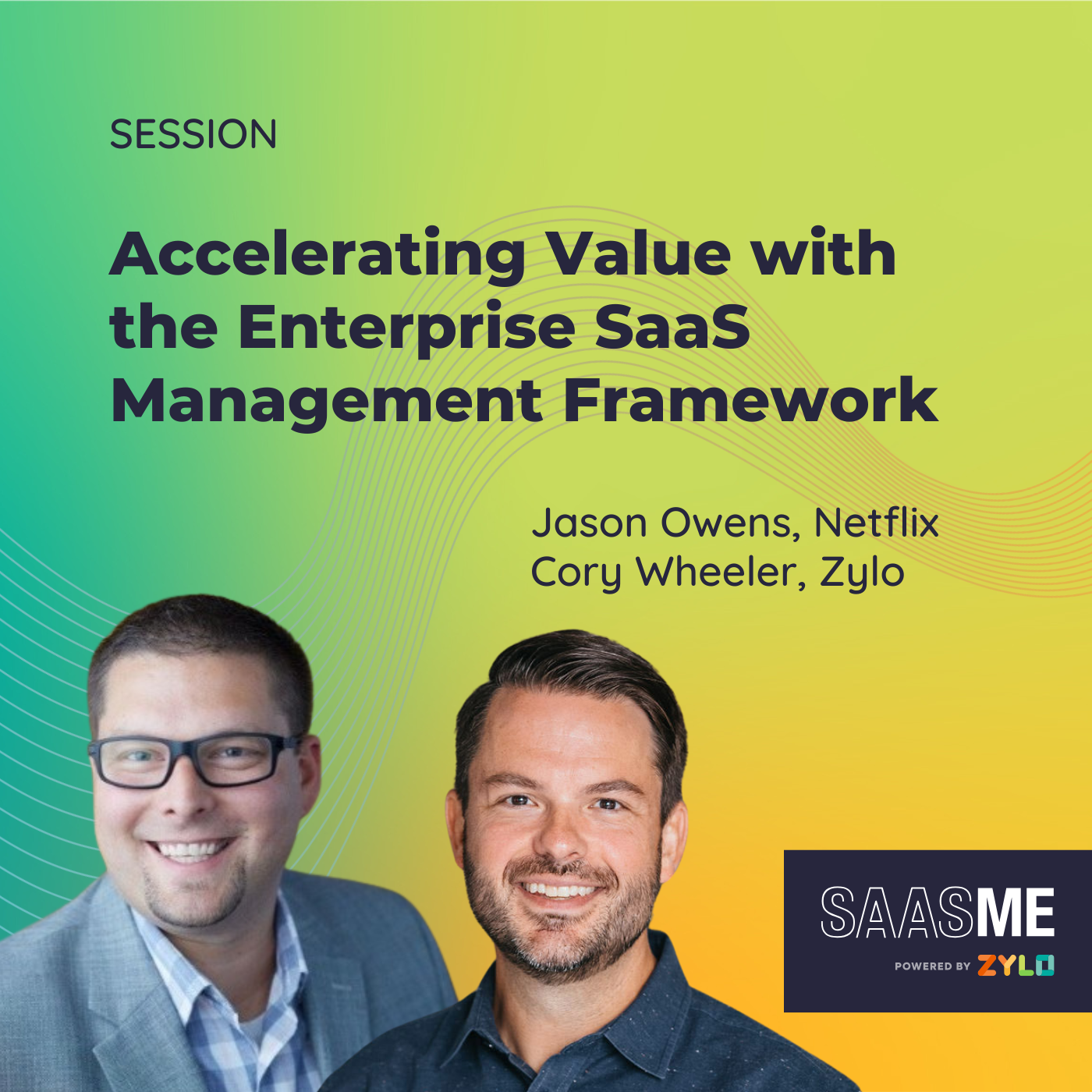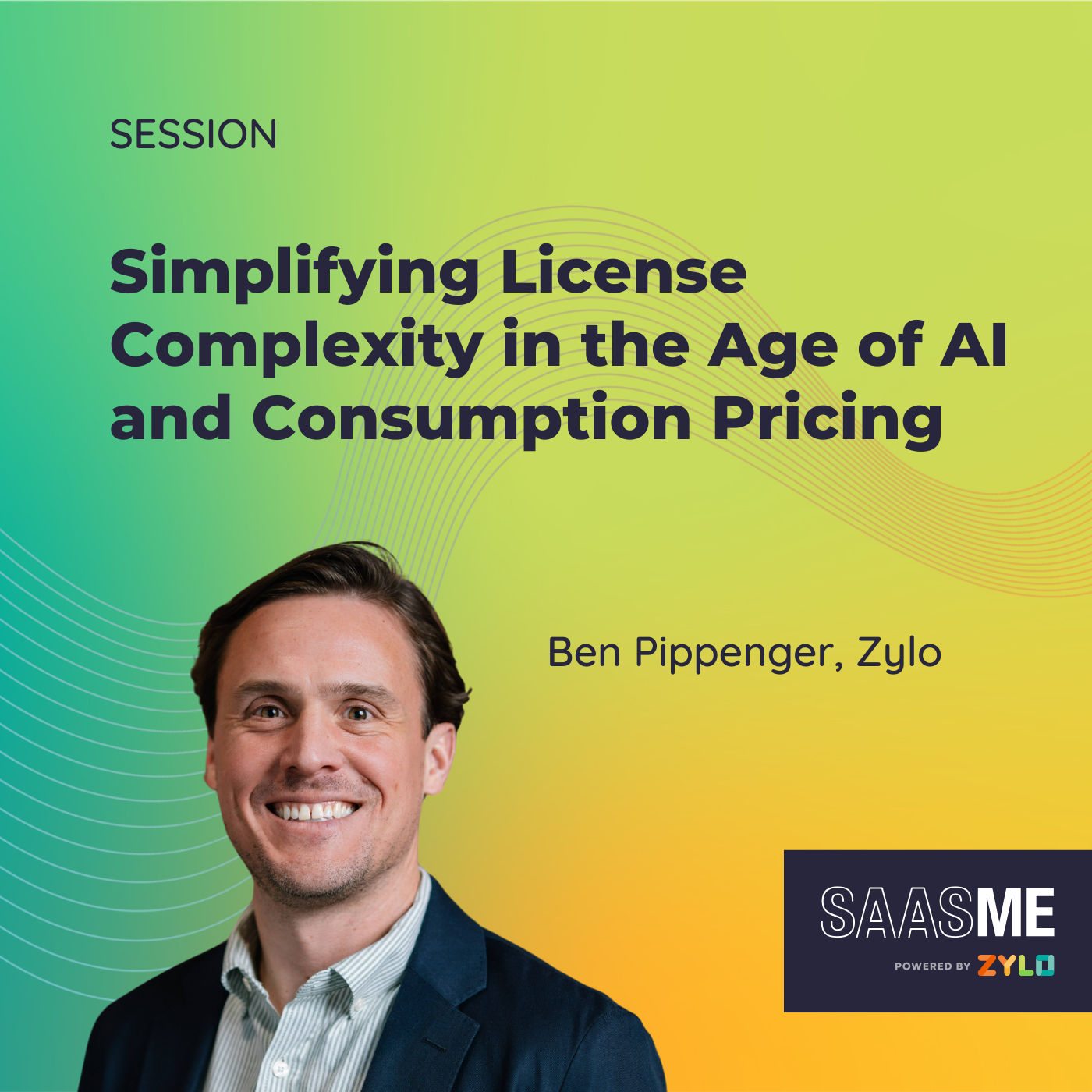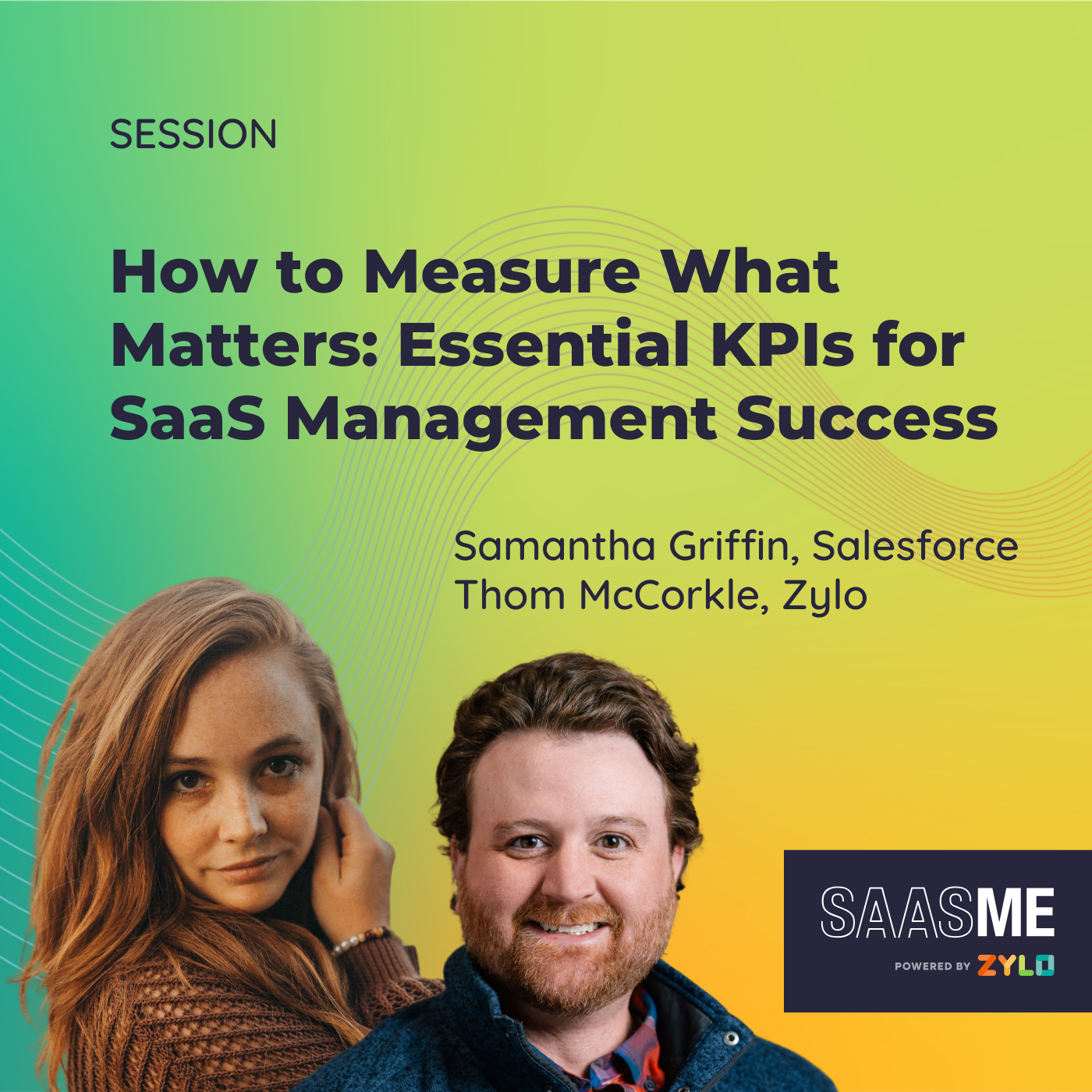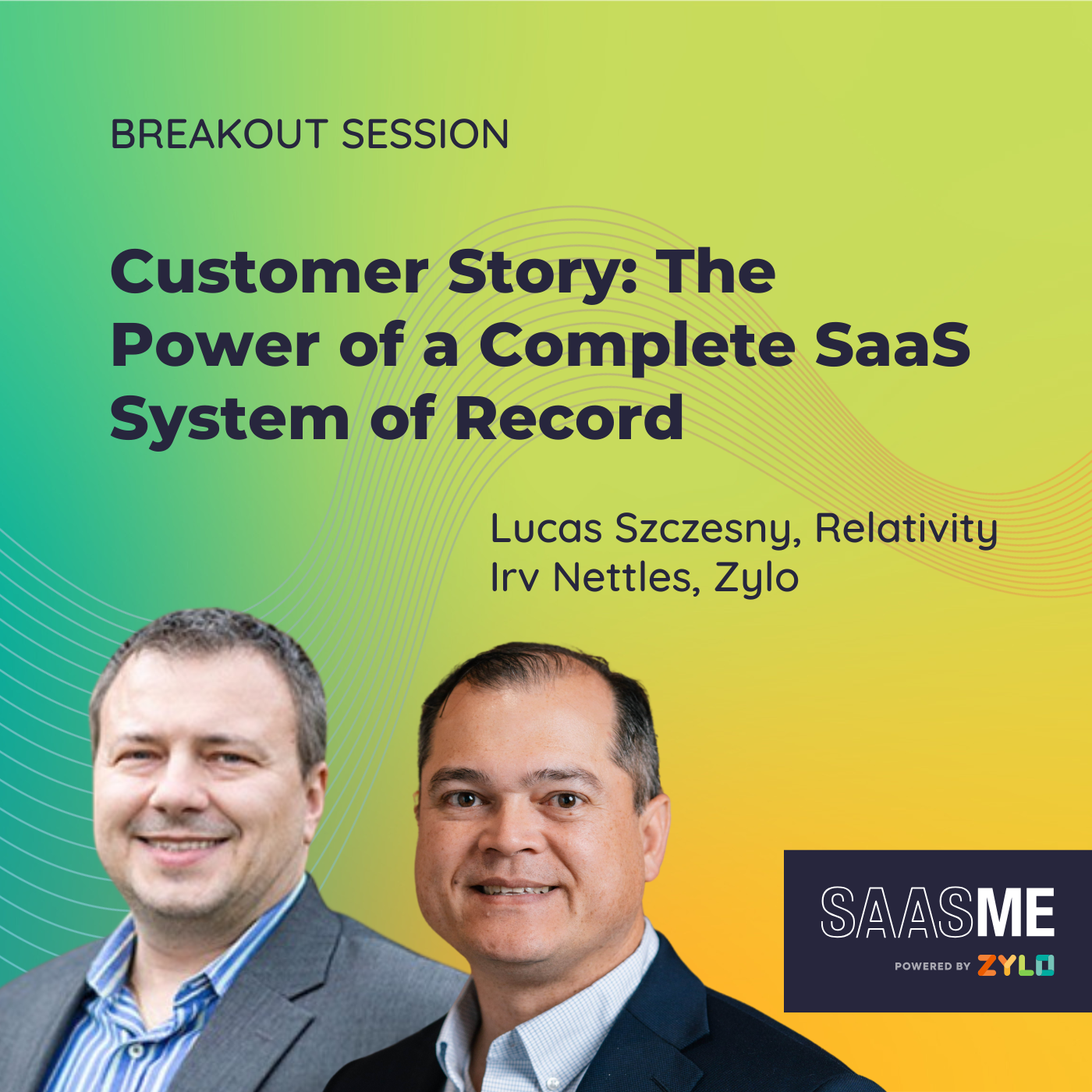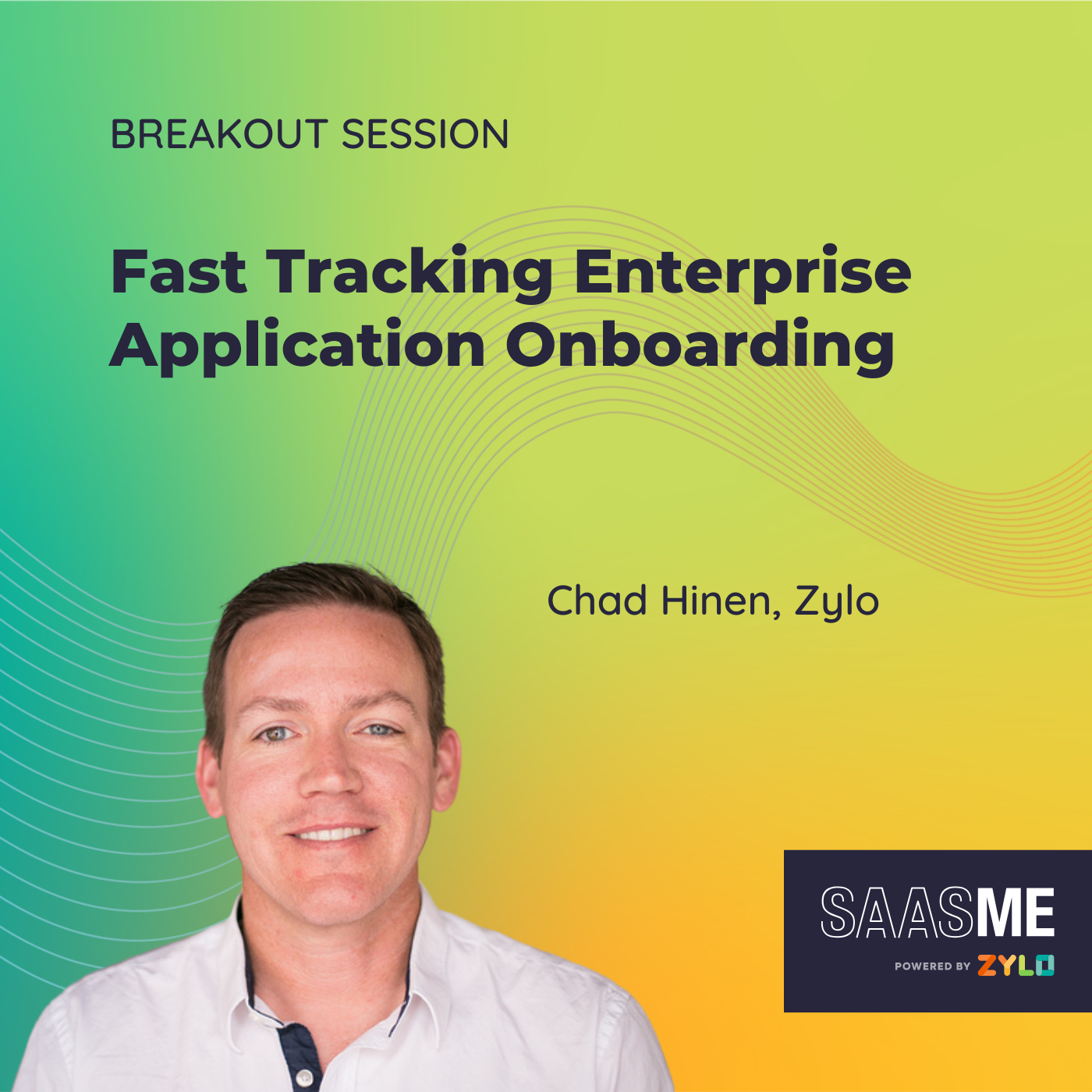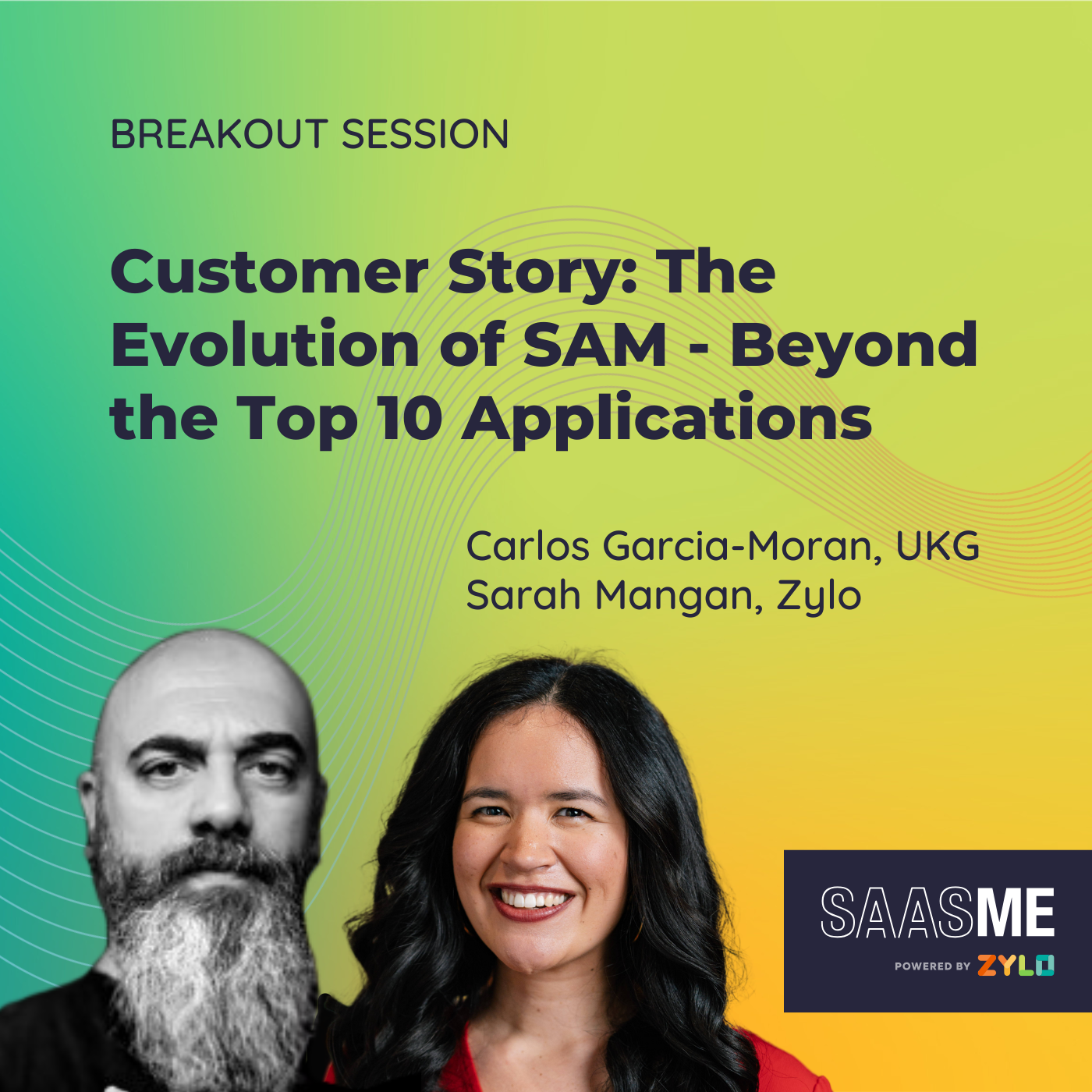Don't Renew Blind. How to Make Intelligent Renewal Decisions
- 0.5
- 1
- 1.25
- 1.5
- 1.75
- 2
Karen Hodson: Hello everybody. I hope you've been enjoying your day with inaudible. I am Karen Hodson and I am the Global Procurement and Real Estate Officer at Marigold. And this breakout is Don't renew blind, how to make intelligent renewal decisions.
Karen Hodson: So let's get started. I already did my little intro, and then here's a little breakdown of what we're going to kind of cover through this short session. Talk about where I work, renewals before we had the Zylo implemented at our organization, and then how we have some straightforward steps to handle renewal decisions. And you can see a little summary of our results that we have had over the two and a half years that we've engaged with Zylo.
Karen Hodson: So Marigold is a global software company that is helping marketers build meaningful relationships through our technology. I have been with the organization for a little over seven years, and in that time we have merged together nine different companies. So you can imagine all of the renewals that we deal with in one organization, let alone pulling a whole bunch together.
Karen Hodson: And Zylo has really been instrumental in helping us manage that. So before Zylo, we were using spreadsheets, right? Most organizations, if you do not have a tool in place or a way to manage the trusty old Excel docs, right? Spreadsheets, how do we track and new rules and reminders and making sure all the right people are engaged to know how to move forward, right? If something comes up for renewal. But inevitably, when you have spreadsheets, human error comes into play a lot more and there's always missing information, missing key data.
Karen Hodson: There's many times when spend on credit cards is happening that you're not aware of. So trying to gather all of that together and pulling information from different spend tools, expense tools, to try to get that data into a spreadsheet that makes sense with contract dates is challenging, right? And inevitably you're going to miss something.
Karen Hodson: And then as I said, with all of our M& A activity, it created big challenges into having some visibility and understanding where there might be similar same tools happening or where all that spend was. So these were all different reasons as to why we started to evaluate tools in the market to help us understand our SaaS spend. I would say our SaaS spend probably accounts for about 85, 90% of our total organizational vendor spend. So it was really important for us to focus on SaaS.
Karen Hodson: And we're a SaaS company ourselves, so we understand the need to run a business based on SaaS. So when it comes to making sure we have the right information to make intelligent decisions, Zylo really helped us for our renewal visibility, right? There's the calendar that is showing a heat map of number of renewals coming up. We've also worked with Zylo to create default reminders, right? So our minimum default is 90 days out. We're getting an email, it's showing up on the calendars, and we're evaluating what's coming up, right? And we can look at what happened last year's renewal. It allows us to give a focus on what's coming up over the next 1, 2, 3, 6, 9, 12 months and see where we need to give our attention, right? Many teams will break things down by department. Maybe they focus on hardware, software focus splits, or marketing, sales, product engineering. So having this visibility of what's coming up allows us to spread that information of responsibility across our team so that we can stay on top of it.
Karen Hodson: And also to be ahead of it, right? There's some key things about understanding what's coming up to be able to make good decisions. So we want to dive into that data, right? We want to evaluate, is this a license tool that we're buying, like Salesforce, Asana licenses, all kinds of things. What is that utilization? inaudible, right? You might've bought so many licenses, but if they're not all being utilized, why not, right? Getting some of that visibility into that.
Karen Hodson: So either through Okta connection or a direct connection with these tools really allows Zylo to give us that granular data on utilization. We also work with Zylo's managed services team, and we gather benchmark data from them to evaluate where do we sit, right? Amongst other companies buying that same software. Are we in the middle of the pack? Do we have great pricing? Maybe there's some room for improvement, and we can use that information to really negotiate and push.
Karen Hodson: And in addition, Zylo is going to let us know what other tools in our company are the same kind of tool out there, or maybe we want to evaluate competition so that we can help drive better savings and negotiations. So Zylo really gives us that information at our fingertips when we're trying to dive into that data on a renewal. It's so important to have really informed discussions internally with your company and the different departments and those who are owning those renewals, right?
Karen Hodson: In procurement, our role is to share the information and help drive conversations and handle contracting and renewals, but we typically are not the end user of this software that we're renewing. So it's important for us to be able to come to the discussion with some intelligent information so we can talk about that license utilization. We can say, " Hey, these are some other tools that the company is using." Maybe there's an opportunity for consolidation. Sometimes not, right? Sometimes there's a need to have two tools out there with different organizations that do similar work, but maybe one department uses a different function that has a need than another department for a different type of tool that fall in the same family, right? Project management software, that kind of thing. We personally in our organization have monday. com and Asana, and why do we have that? There's different needs for the different departments, but we have selected maybe one is the main tool that the company uses, and then there's a side one for one particular team. But knowing why is so important. So having those conversations internally to understand the needs of those tools. Have there been any challenges over the year for that tool that we need to look to renew, right? Are there plans to grow to shrink? What's the future needs look like, right? So having those discussions, coming with data, pointing things out, sharing information is really key when you're having those internal conversations before you start talking with the vendor on a renewal.
Karen Hodson: And at a minimum, you want us to do this at least three months out, possibly more because say there is a need for a change, right? A lot of times it takes time to move away from a tool. So the last thing you want to do is have two weeks left before a renewal and the internal team wants to make a change, but they can't get that done in two weeks, right? So it's really important to get those conversations started well in advance so that there is time to figure out what kind of bandwidth teams might need for implementation. Or maybe it's, hey, we need to evaluate other options in the market, or we need to evaluate other options just for the negotiation piece of it. So there's a lot of action that goes into play to prepare for a renewal discussion with a vendor, right? Having all that data from Zylo, having those internal discussions with the team, evaluating what last year's renewals looked like, and doing this far enough in advance so that you can really have a true impact on that renewal, right? Whether it's a change, an increase, evaluating how best to negotiate by pulling all that data together. So those were like... I know I kind of went through it fast. Those were really where we focus when it comes to utilizing Zylo for renewals. We also are capturing all the spend.
Karen Hodson: And then being able to evaluate contract and pricing and utilization on both of those organizations and being able to figure out which one we want to go with going forward and how to merge those things together. So now we're kind of at this point that it's all about these renewals, right? Sometimes we have some new ad, but really it's about what's coming up, how do we best prepare ourselves for those discussions for renewal and negotiations, and then also helping the finance team build out that budget for the next year. So we have that information. So we don't have surprises when it comes to SaaS renewals. You can see here from our information, we've saved almost a million dollars in the two and a half years by really diving in and evaluating where we can trim the fat, where we can negotiate, where we can consolidate.
Karen Hodson: And Zylo has been instrumental in us doing that. We have used their managed services and we really see them as just an extension of our team. We use both the manage and negotiator. So we want to make sure that the information that we have in Zylo is clean as possible, which they help us work to make sure that that information is as accurate as it can be.
Karen Hodson: And then we discuss game plans going forward, how do we negotiate? Where do we sit in the market? Bringing that benchmark information so that we can have educated internal and external discussions for our renewals. So I know I spewed a whole lot out really fast to kind of cover how we use Zylo to handle our renewals and be prepared, but if anybody has any questions that they would like to pose or chat with us, chat with me about what we've done for our organization to really utilize Zylo, please feel free to put that in the Q& A section. I know there's a chat section and a Q&A, but if anybody would like to put anything there. Just looking in the chats. Yeah. So Zylo does have that benchmark built into their tool. We personally just rely on our partnership piece, right? With the managed services. They're really the extension of our team, so they're just another member of our team.
Karen Hodson: And I think we would struggle a bit to not have them part of our team because we've just worked with them so long. Anybody? I am trying to read through some of these comments. I want to make sure that I cover anything that might be popping in there since I don't think anybody's using the Q& A section. So one of the big things with the managed services piece that we use is when payment information is coming across, we use NetSuite and that information comes in automatically. We also use Expensify for company expenses, is that the managed services team helps flag new tools that are popping up, helping us evaluate, are these really new tools? Or maybe they just have a different name, right? We all have experiences with like, Hey, there's a ManageEngine.
Karen Hodson: Okay, well great ManageEngine, you can buy multiple types of tools from ManageEngine. So how do we break down to make it very clear what tool that spend is or that renewal timing is tied to? So we all have that game, right? Atlassian is a great example as well, right? There's Confluence, there's Jira, there's multiple tools that we're buying from them. Adobe is another example of that, right? Different types of tools we'll be buying from them, JetBrains. So when all that spend is coming across, it may just be coming across as JetBrains, right? From our finance tool. Now we need time to spend and dive in and break it down to make sure that it's clear what spend is tied to what type of tool we're buying from JetBrains. So they help us deal with that.
Karen Hodson: And they also help us tie internal department owners to the different spend. They have worked very closely with our IT team to make sure that they've connected our Okta instance so we can get utilization information.
Karen Hodson: And then all of the tools that Zylo has a direct connect with, we are working to do those direct connections to have cleaner utilization information. So that's kind of what we use them for.
Karen Hodson: And then they have definitely worked with giving us information to better negotiate. They've also handled negotiations on our behalf. There's some that we have particular relationships where we kind of tag team and they were a team to support each other on that. There's some that they fully run those negotiations, and then there's some where they're totally in the background and just supportive. So it really can be what works best for your organization and what you need, but based on how much it costs to have those services and Zylo as a tool, really allows for us to take the bandwidth that we have with our full- time employees to focus in other areas instead of data gathering. Yes, the managed services team does give the benchmark data.
Karen Hodson: Just looking at questions. So I'm just going to kind of cover back some other things that we've used with Zylo beyond renewals. I mean, I think renewals is probably one of the most important things in the world of procurement and negotiating with vendors, making sure that right things aren't auto- renewing. Hence, another reason to be well ahead of the discussions, the bane of all procurement existence is auto- renewal. So this helps us to be ahead, to catch anything that happens to be on an auto- renewal if we need to make changes or terminate. It also allows us to have that information.
Karen Hodson: The biggest thing for us really, especially when we're doing the M& A activity, is really to understand what the spend was... What are all the tools we're buying from? What is the spend associated with those tools? And then where are their overlaps? What tools are overlapping? And now we're at this point that we've been with Zylo long enough that we already have narrowed down to eliminate those overlaps. And if there are multiple of the same kind of tool, like I said with the project management type software, we know why we have multiples of those, right? It isn't just, well, I'm unsure this team is buying it and that other team is buying it. No, we have a clear answer as to Team A is buying it for X, Y, and Z on this tool, and Team B is buying the other tool for X, Y, and Z, and the other one isn't able to provide that. So we have those clear discussions and be able to tell that story up, right? Because all the time we have to be able to not only discuss it with those departments internally, but be able to push it further up the chain, right? CFO wants to know, CEO wants to know, board wants to know. So we give that information and are able to share that so that everyone above us has that full picture and story to tell.
Karen Hodson: So with the M& A piece, there's a question in there. So what we did with that is basically it's almost a second instance of Zylo, right? So when we did an acquisition with a company. That company's finance tool is typically separate, even if it's the same, both NetSuites, but it's two different instances of NetSuite. We had a second instance that pulled in that data, pulled in all their spend data, and then we were able to do a cross comparison between all the data being pulled from Organization B that we just acquired and compare it to our organization.
Karen Hodson: And the managed services team did a lot of the work to help us evaluate where it was same, right? Hey, we have DocuSign, they have DocuSign, or we did nine companies together at one time. It was, well, we have DocuSign, they have Adobe, and it's an evaluation, right? How many users on each one? What's the rates that we're getting? And then making a decision on, well, do we go with company A's tool or do we go company B's tool? Is there a change that needs to made? Or what's the timing of those contracts and merging them together? So multiple DocuSign contracts, different timelines, how do we have those conversations?
Karen Hodson: One, discussing rates and then two, discussing merging of those contracts and whatnot. But having that information at your fingertips to be able to have that conversation with the vendor is really key. So we had a second instance that we could toggle between, right? In our dashboard, right? We're looking at our main one, and then we can toggle to the dashboard or the company that we had just acquired to pull up all of that information and do the comparison. And then the managed services team helped us take that information from both instances and do a comparison looking at same tool, similar tools, and then where there was complete differences. Because even sometimes we go, " Well, why does this company have this tool and we don't? Is there a reason maybe we should expand or get on board with that other tool?" So it really helped us look at the information in a big picture format, both with price and with timing, and then types of tools.
Karen Hodson: Anyone else have any questions? Some of the information that's coming across from the finance tools has been really helpful to be able to see how our finance team is booking it, right? The vendor and the spend. And is it an invoice that is being paid or was it being paid via credit card? So will we know the method of payment helps us a lot of times track down ownership of those tools internally. There's always those little credit card spends every month, right? $ 10 a month reoccurring, or$ 50 a month, or $120 a month, whatever it might be, reoccurring and needing to know the timing. Is it a month to month? Is it an annual, but build month to month? Things like that. Is it being paid on credit card? Is it being paid via invoice? So that visibility is super helpful.
Karen Hodson: Anyone else? We got chats. Let me jump to Q& A. So, we got those covered. Well, I really appreciate everyone's time. Feel free to reach out via LinkedIn if you have a chance.
DESCRIPTION
Feeling lost in a maze of looming renewals? Don't just blindly stumble into another automatic "yes." We'll show you how to master the art of intelligent renewals by using contract data, benchmark comparisons, and more. Discover how to operationalize the process for clearer visibility, control, and cost savings.
Speaker: Karen Hodson, Global Procurement & Real Estate Officer at Marigold


